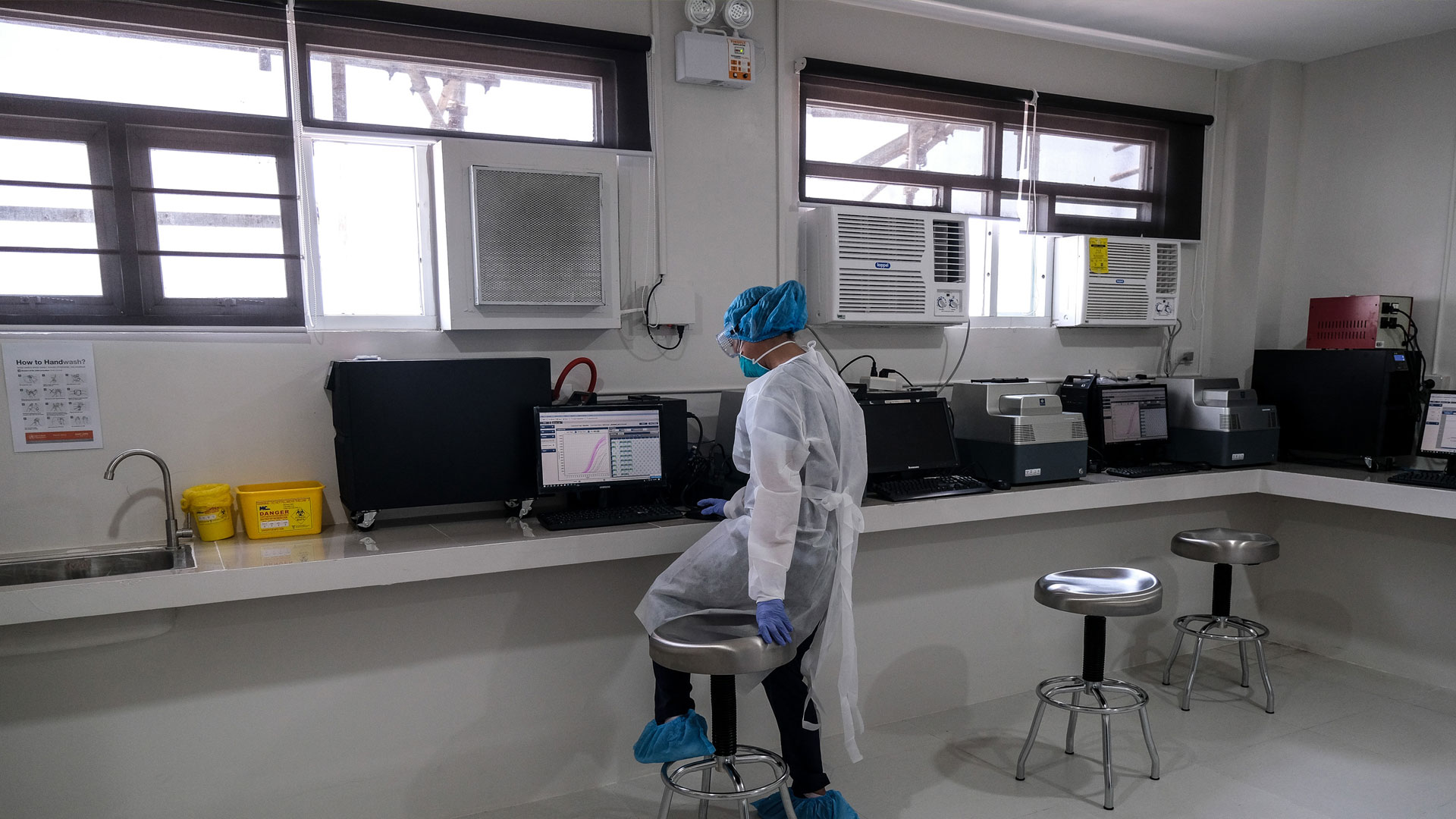Smart Air Conditioning Against COVID-19
Reducing Coronavirus Transmission
With the ongoing COVID-19 pandemic, mitigating the risk of virus transmission in public buildings with centralized air-conditioning systems has become more urgent than ever.
In many Asian countries, the risk of transmission of diseases in public buildings with centralized air conditioning is higher, mainly because of inadequate hygiene standards, poorly maintained and inefficient air-conditioning equipment, and large crowds in enclosed spaces. In dealing with these risks, it is necessary to make building operations energy efficient, using smart technology to reduce the risks of exposure to communicable diseases.
In September 2020, ADB embarked on the Regional Support to Build Disease Resilient and Energy Efficient Centralized Air-Conditioning Systems project to promote health-resilient clean energy development in its member countries. The project is financed through the Clean Energy Fund under the Clean Energy Financing Partnership Facility and the High-Level Technology Fund. Each fund provided $500,000 to the project.
Piloting Smart Air-Conditioning Systems
The project involves three main activities. First is an assessment of the energy efficiency and virus transmission risks to centralized air-conditioning systems in typical public buildings. Second is the development of an operational process for smart automated control systems under pandemic and normal conditions. And the third focuses on enhancing the capacity of institutions to use these smart centralized air-conditioning systems.
Proper design and operation of air-conditioning systems combined with smart digital technology can optimize system operations and prevent virus transmission through a range of advanced solutions and technologies. These could include highly efficient particulate filtration, proper humidification, and ultraviolet sterilization technology that reduce airborne contaminants. The different technologies can be integrated with smart digital control systems for the operations of air-conditioning systems to reduce energy consumption.
The project will install and operate three pilot systems in public buildings to demonstrate the effectiveness of clean and smart centralized air-conditioning systems. Such technology is expected to be taken up by member countries to mitigate the risk of COVID-19 and other transmittable diseases.
Healthy Air, Clean Energy
Air conditioning can account for up to 50% of the energy consumption of public buildings. If advanced air-conditioning systems with energy-saving technology are used along with demand-side management in buildings, the energy savings could reduce the operational cost of public buildings, thereby contributing to climate change mitigation.
The project is essentially a study on mitigating the risks of virus transmission, including and especially COVID-19 transmission, and ensuring safe working conditions in public buildings by deploying efficient, clean, and smart centralized air-conditioning systems.
The deployment of such technology is expected to reduce energy consumption in public buildings by at least 10% and meet hygiene standards for indoor air quality.
Project Details
Regional: Regional Support to Build Disease Resilient and Energy Efficient Centralized Air-Conditioning Systems
Cost
$1 million
Cofinancing Partners
- Clean Energy Fund under the Clean Energy Financing Partnership Facility (Technical Assistance) $500,000
- High-Level Technology Fund (Technical Assistance) $500,000
Dates
Approval Date 12 September 2020
Signing Date 12 September 2020
Completion Date 31 December 2021


